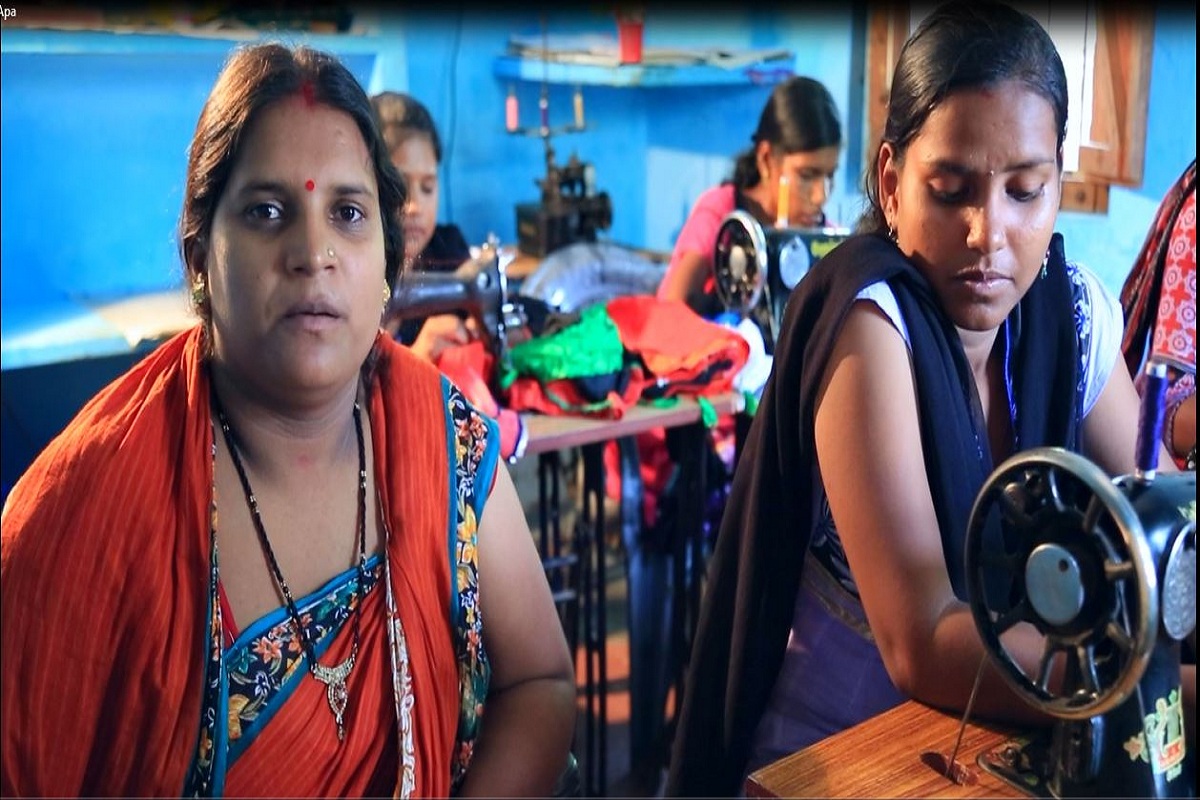TN: Coimbatore woman entrepreneur designs India’s first “indigenously” built hovercraft
A woman entrepreneur in Coimbatore has claimed to have designed India's first indigenously built hovercraft that can run on land and water.
Basanti has the credit of training over 1,200 women from poor families in stitching in the last one decade. Among them, 200 girls have become entrepreneurs and run their own independent business enterprises.

From DIvyang ladki to a role model: Basanti Rana at her training centre
Basanti Rana, 37, today is a successful entrepreneur in her own right. Hailing from a poor family in the Jajpur district of Odisha, over 100 km from capital Bhubaneswar, Basanti has the credit of training over 1,200 women from poor families in stitching in the last one decade. Among them, 200 girls have become entrepreneurs and run their own independent business enterprises.
This is the same Basanti who was once treated as a social outcast. She was not allowed to befriend with other children as people in her circle used to define her entire existence by her physical disability calling her ‘viklang’ or ‘divyang’ (physically challenged). But today, she no longer carries the stigma. She is no more an ordinary woman today.
Advertisement
She was three when her legs started weakening due to polio. This pushed her towards a life of social ostracism, alienation and deprivation and even societal ridicule with “Divyang ladki” (disabled girl) being her nick-name given by society. However, she didn’t allow these setbacks to demoralise her.
Advertisement
But she valiantly fought against all the odds and carved a niche for herself in entrepreneurship and became a role model for others.
An arts graduate, Basanti learnt stitching and tailoring during her school days. Later, she set up a small tailoring centre to train village girls and women in 2011. She started stitching clothes for living, but now boasts of a modest turnover of Rs 10 lakh.
The young woman was awarded for her feat as a rural entrepreneur in 2019 by then vice-president Venkaiah Naidu.
Today, Basanti has more than 15 machines at her training centre. Apart from providing training to rural women and girls, she sells clothes stitched at her centre.
The Bhartiya Yuva Shakti Trust (BYST), an NGO, in collaboration with the Tata Steel, undertook a project in her district, Jajpur, to run a mentorship programme to nurture entrepreneurs from grassroots level primarily from rural areas and slums. This is where Basanti got the aid.
“I have mentored over 1,200 village girls, grooming the entrepreneurs inside them, equipping them with tools of garment manufacturing technology, so that they can take this gender revolution to their peers and next generation. Among them, 200 have become independent and running a self-sustaining business model,” Rana said, adding that right mentoring and some financial support help make an entrepreneur out of young village girls.
In her batch, two more girls suffer from physical disability.
Lakshmi Venkataraman Venkatesan, founder managing trustee of the BYST, says, “Basanti Rana’s success served as a strong validation of the mentor-mentee model we have pioneered over the last 30 years. Along with mentor support, we helped Basanti secure a bank loan. Now a successful entrepreneur, she has trained 1200 women in garment production skills. A socioeconomic revolution is brewing in Odisha.”
After her marriage in 2004, with the support of her husband, Basanti started picking up small stitching assignments for women from her village, but dreamt of converting it into a garment manufacturing business, but the dream was too big for the pockets of Basanti and Tapan.
In 2017, the mother of two participated in a fair in Delhi where former president Ramnath Kovind visited her stall and praised her venture.
Advertisement